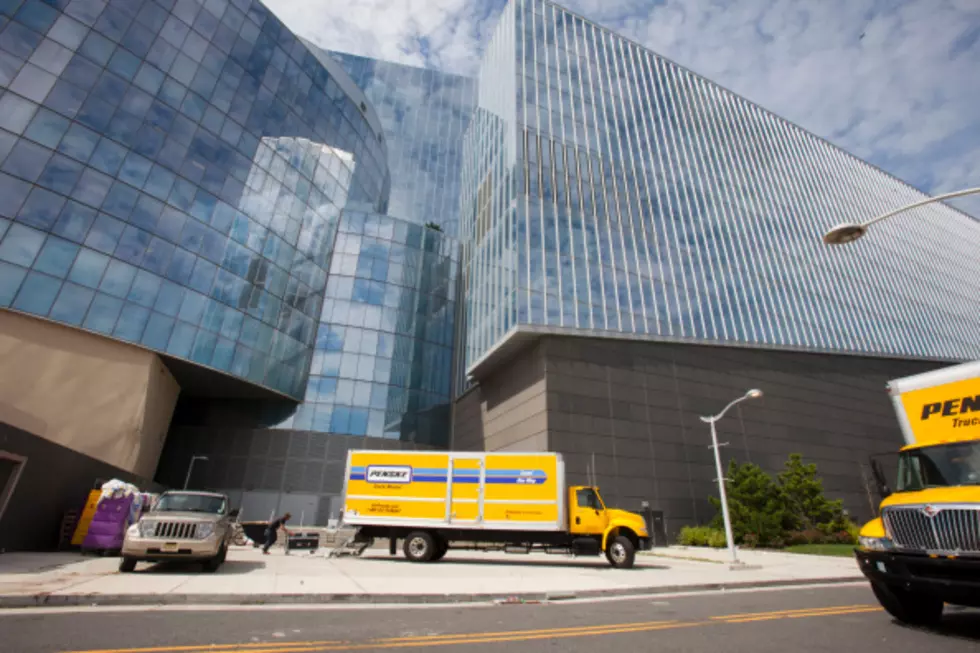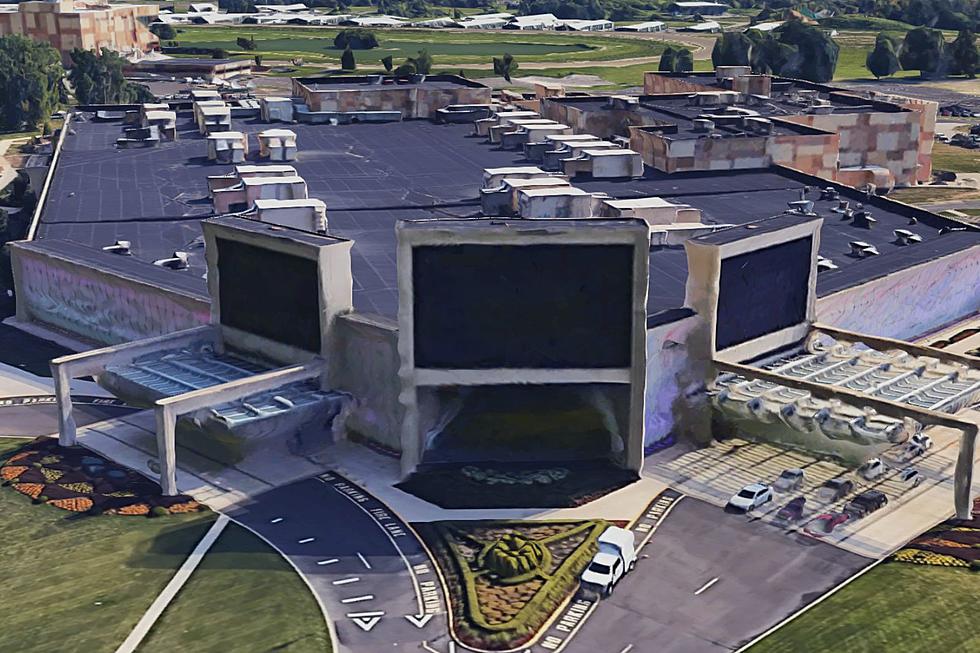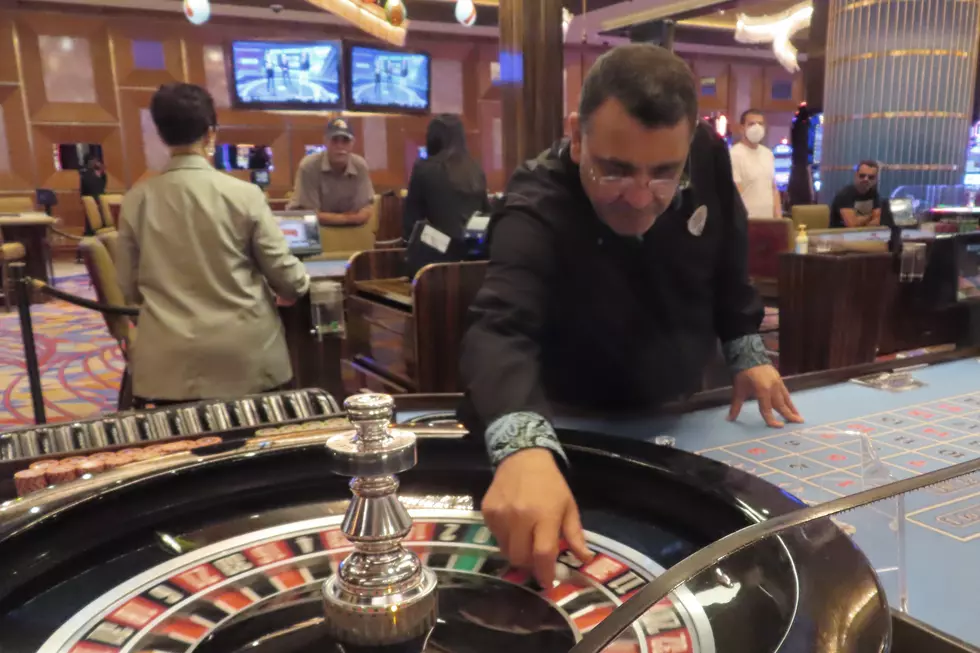
Despite push from Christie, Atlantic City still in trouble
Soon after taking office in 2010, New Jersey Gov. Chris Christie took stock of problems around the state and saw a big one on the beach: Atlantic City.
The resort's gambling industry was in the early stages of a decline brought on by increasing competition in neighboring states, but parts of the city had been struggling for decades with crime, unemployment and poverty.
So he dove in headfirst, unleashing a torrent of initiatives aimed at getting Atlantic City back on its feet. He gave the resort five years to improve or he would consider ending its monopoly on casino gambling within the state.
Some of Christie's moves have worked -- to a degree -- but many have not, and the Republican presidential candidate running on his record of leadership in New Jersey has been forced to again face down a financial crisis that threatens to bankrupt Atlantic City.
Christie on Tuesday backed a plan to have the state take over most of the city's decision-making power, including its finances and the right to sell city assets and land.
"We have done a lot of things so far that have worked for the private sector," Christie said. "But it did not work with the government, and so now we have to take this next aggressive step. We wanted to give Atlantic City a five-year opportunity to have some of these problems work out on their own. They did not."
Atlantic City Council President Marty Small, a Democrat, said Christie's moves haven't improved things.
"He's been a failure for Atlantic City, there's no other way to put it," Small said. "They promised all this development and that things would turn around, and nothing happened. I really wish people in Iowa and New Hampshire would pay attention to Atlantic City."
Christie's initiatives included creation of a state-run tourism district that got extra attention and resources, from police to sanitation. He approved Internet gambling, which has moderately helped casinos, and is pushing to overturn a federal ban on sports betting. He offered hundreds of millions in tax credits to a casino that had yet to open and later went out of business, and gave millions more to train its workers.
Here's a look at what Christie has done in Atlantic City, and how it has turned out:
THE PLAN
Saying "Atlantic City is dying," Christie in July 2010 proposed a state takeover of essential services in the casino district. He also called for the state to get out of the horse racing business, using the $30 million a year the casinos had to send to the industry to promote Atlantic City through a new agency. The Atlantic City Alliance is now set to be disbanded and its money sent to help Atlantic City's finances.
On Feb. 1, 2011, the state created and took control of a tourism district. It also decided that casino taxes that had gone to projects across the state could only be used in Atlantic City. More than $800 million in projects have been funded, said the agency's executive director, John Palmieri, including better Boardwalk lightning, facade improvements and a conference center.
THE TOURISM DISTRICT
The state lavished attention and resources on the city to improve cleanliness and public safety, hiring special officers to complement regular police, and deploying dozens of "Boardwalk ambassadors" to help with visitor inquiries and watch out for trouble. New video cameras and gunshot-detecting audio equipment were installed.
The number of murders in the city dropped to six last year from 13 in 2011, but many visitors still say they feel uncomfortable venturing far from the Boardwalk or the casinos. On the very day Christie announced his state takeover, two young men were shot in Atlantic City in separate incidents; both survived.
REVEL
When the $2.4 billion Revel casino resort ran out of money halfway through construction, Christie promised $261 million in tax credits if it reached certain profitability milestones, and added $2.6 million to train workers. The state backing enabled Revel to obtain the private financing it needed. It opened in April 2012, filed for bankruptcy twice, and shut down in September 2014 without coming close to turning a profit. The tax credits were never used. It was sold for 5 cents on the dollar in bankruptcy court and remains shuttered, one of four of 12 casinos to go belly-up in 2014.
MONOPOLY LOST
With the five-year exclusive period expiring on Monday, Christie has backed a plan to expand casinos to the northern part of the state. A bill is pending to let voters decide in November whether to approve two new casinos near New York City, with some of the tax revenue going back to Atlantic City.
MEET THE NEW BOSS
Christie convened summits with key stakeholders that led to the appointment of an emergency manager last year to help sort out city finances. Kevin Lavin, whose term ended this month, recommended spending cuts and state actions to help reduce Atlantic City's considerable debt. The summits also led to legislation to let casinos make payments in lieu of taxes in return for not appealing them. Christie vetoed the bill twice, including once after getting the exact changes he requested. This week, Christie backed a state takeover of Atlantic City.
(Copyright 2016 The Associated Press. All rights reserved. This material may not be published, broadcast, rewritten or redistributed.)
More From New Jersey 101.5 FM









